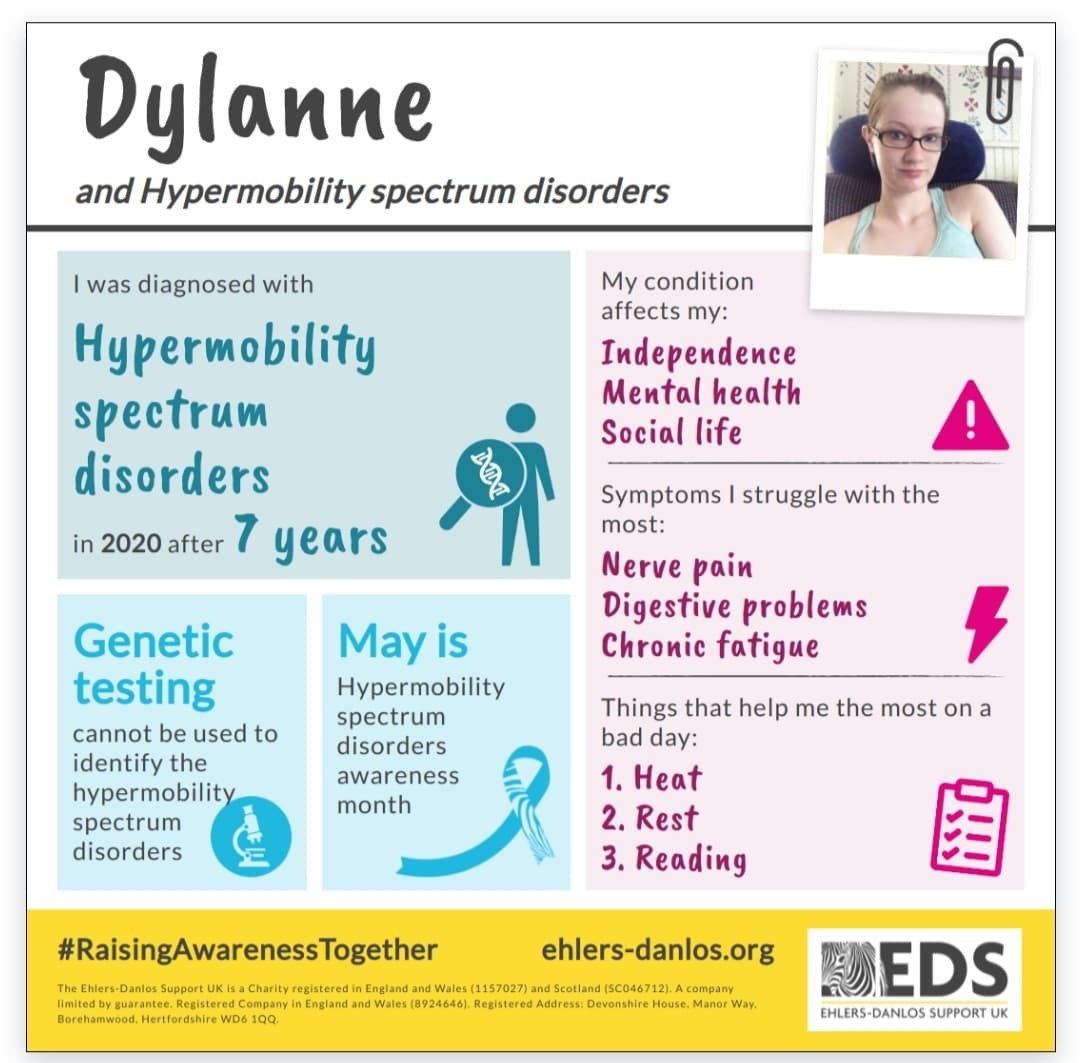MY EDS Challenge Day 4- Four facts about EDS/HSD in Hypermobile Life
- May 4, 2022, 12:02 p.m.
- |
- Public
I am taking part in #MyEDSChallenge and #MyHSDChallenge with the Ehlers Danlos Society. Since May is EDS awareness month, every day I will be sharing something about myself and my EDS journey to drive further awareness and community.
Day 4- Four Facts about EDS/HSD
1) The most common type (hEDS & HSD) does not have genetic testing available to diagnose. What people that suspect they have EDS usually do is have genetic testing done to rule out other types of EDS and other connective tissue disorders. Unfortunately, it takes years to get into a geneticist sometimes, there are services available online for genetic counseling and testing.
2) Many of the symptoms of EDS are overlapping between the types. An example of a type of question I hear a lot of people asking is “I have receding gumlines, does that mean it’s possible I have periodontal EDS (pEDS)?” The answer is most likely not but MAYBE. Severity of symptoms are on a spectrum. Many people with HSD and hEDS have a lot of the same symptoms that the rarer types have. The only way to really know is to have genetic testing done to rule things out.
3) The average amount of time it takes to get an official EDS diagnosis from a doctor is 10 years. This is a generous average. Many people go their whole lives not knowing or spend 20-30 years waiting before they know. In my nearly 10 years trying to rule things out, not one single doctor mentioned EDS as a possibility as to what could be causing my pain. Doctors are more focused on treating symptoms than getting to a root cause as to why it’s happening. Their education about EDS is usually less than ten minutes and they’re told they will never come across anyone with it.
4) There is no cure for EDS/HSD. Living with EDS requires a chosen medical team/ specialists that believes you and communicates with each other, which is super hard to find. Treatments include addressing the specific co-morbid conditions. These may include gastrointestinal issues, autonomic nervous system dysfunction, pain management, physical therapist, a cardiologist, and a talk therapist. Figuring out which co-morbid conditions you have may take years of research and testing and trial and error with doctors to get these multiple diagnosesis on paper.




Loading comments...